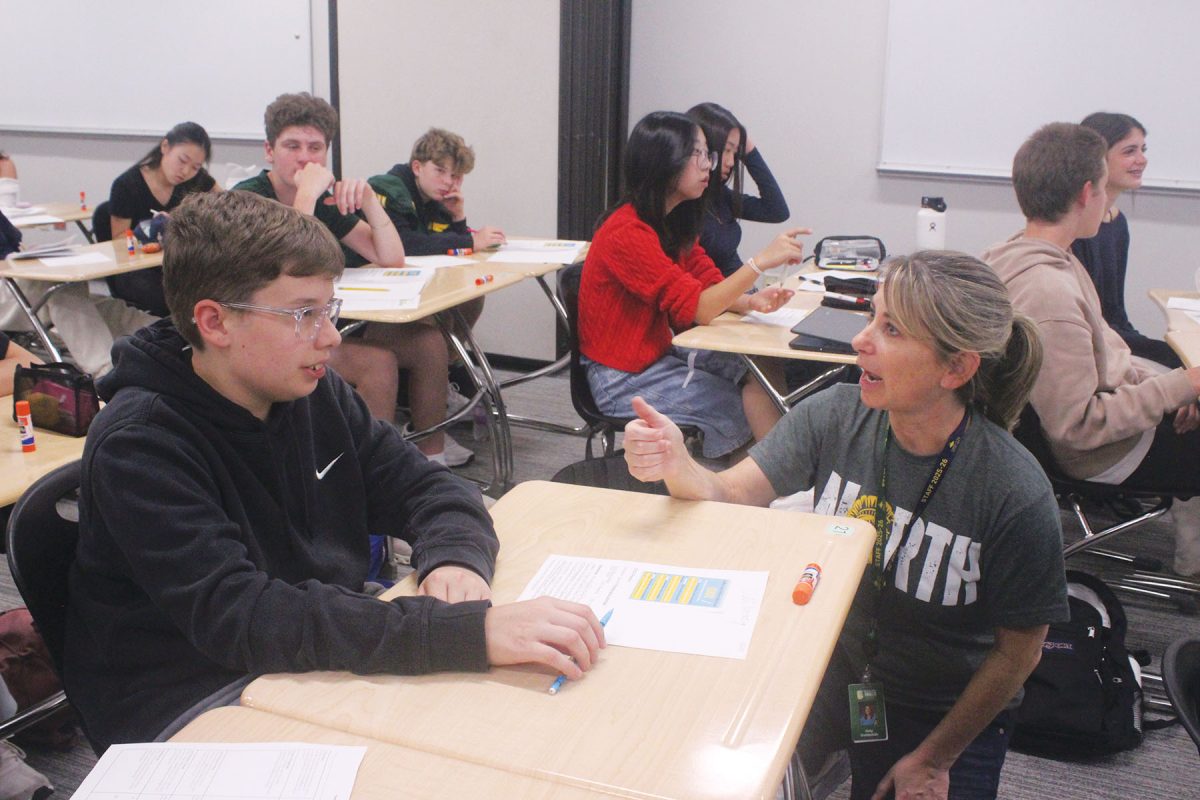Freshman Kacey Lee walked into her Spartan Seminar class on the second day of school not knowing what to expect but ultimately left feeling supported as she transitioned into high school.
“They told me what resource centers there were, because I didn’t even know there was a resource center or a testing center and all that stuff,” Lee said.
Spartan Seminar was introduced as a replacement for Freshman SRT. Instead of having an open 45 minutes at the start of the block, freshmen now stay in a classroom to do work or participate in lessons.
“I felt there was a need to provide more support to our ninth grade students as they transitioned from middle school,” said Amy Goldsmith, multi-tiered system of support coordinator.
Students, families, faculty and administration identified areas in a survey where they would like to see more support for students and Goldsmith went through the results to pick topics for Spartan Seminar lessons, she said.
Some of those areas were study skills, time management and self-advocacy.
Nine lessons are scheduled to occur this semester and are intended to align with topics that are relevant to freshmen at that point in the year. Students have learned about different note-taking strategies, the resource centers and have met with their counselors.
We were taught different ways to take notes, such as Venn diagrams and charts, and in which cases to use them, freshman Vaughan Parry said.
According to Lee, meeting her counselor was the most helpful part of Spartan Seminar so far.
“I could connect with them and ask about my new schedule,” Lee said.
Spartan Seminar students were given a Glenbrook North assignment notebook to help them create schedules and track their workload.
Goldsmith and English teachers noticed a decrease in students’ executive functioning skills and felt that there were teachable moments in the classroom but didn’t want those moments to only occur in English class, she said.
“For example, students [did not know] how to track their assignments or [how to] break down long-term projects,” Goldsmith said.
Future lesson topics include going over elective course options, test-taking strategies and students’ digital footprints, Goldsmith said.
Students are able to leave the Spartan Seminar classroom to meet with teachers, visit resource centers or make up tests.
Students complete feedback forms after each lesson so staff can review student perspectives and see if adjustments to the Spartan Seminar curriculum are needed.
In a form sent electronically to students after the second lesson, 83.9 percent said they would keep the meeting with the counselors and SchooLinks lesson exactly the same, Goldsmith said.
“We put a lot of time and energy into trying to make this great for students this year, but we’re gonna keep doing the feedback forms in order to get their input on what changes to make,” said Goldsmith. “So we will absolutely alter the lessons to fit the needs of the students and what they’re asking for.”
According to Lee, Spartan Seminar has been beneficial in helping her adjust to high school and form better homework habits.
“It definitely helped me learn what’s so different about high school and middle school,” said Lee. “And it helped me understand how to get help and how to focus more on things like homework.”


